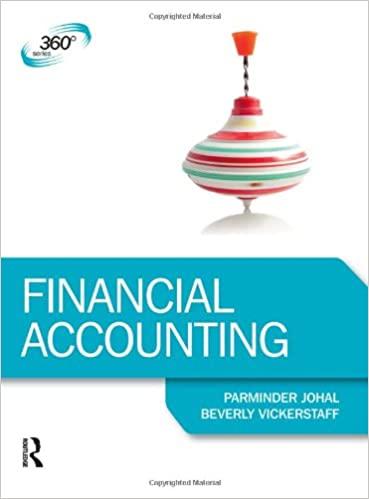Question
Easy-Brew Coffee Inc. Easy-Brew Coffee Inc. is an e-tailer, shipping from a single Vancouver-based warehouse, which sells single-brew coffee machines exclusively in the Canadian market.
Easy-Brew Coffee Inc. Easy-Brew Coffee Inc. is an e-tailer, shipping from a single Vancouver-based warehouse, which sells single-brew coffee machines exclusively in the Canadian market. (Easy-Brew competes directly with Keurig and Tassimo.) The industry is fast-moving in that models with new features and/or cosmetics are released every 12-18 months. In order to keep manufacturing costs low, Easy-Brew negotiated a lease with an Asian manufacturer to provide adequate production for the foreseeable future. Also in the spirit of managing costs, Easy-Brew transports product from Asia to Vancouver by ocean transport in TEU containers. One TEU container can hold up to 1,000 coffee machines. The lead-time from when Easy-Brew places an order with its Asian supplier, until the product arrives at the DC, is eight weeks. Orders are shipped to individual customers using the services of Canada Post. The math geek sales analyst has determined that the monthly (by monthly we mean a four week period) demand follows a normal distribution with mean of 1,000 units and standard deviation of 250 units. December, where demand randomly falls between 1,500 2,500 units, is an exception. The daughter of the Easy-Brew CEO recently attended an introductory workshop on supply chain management. At Thanksgiving dinner she suggested that she had some ideas that might be useful for Easy-Brew to pursue.
Proposal #1: Purchase a demand forecasting software package. Using a sample of historical Easy-Brew demand data, it was determined that a decent package will be able to predict monthly demand with the following accuracy: within 150 units eight weeks into the future.
Proposal #2: Switch from ocean transport to air-shipping in LD6 containers (which can hold up to 250 units). This will reduce the order-to-delivery lead-time from eight weeks down to two weeks.
1. Effect due to proposal 1 and proposal 2. Which is the choice and why?
2. Illustrate changes in the balance sheet, and income statement.
Financial statement information:
Income Statement information
| Base | Scenario #1 | Scenario #2 | |
| $ | |||
| Sales | 1,028.0 | ||
| Cost of Sales | 621.0 | ||
| Gross Profit | 407.0 | ||
| Operating Expenses (incl SG&A) | 340.0 | ||
| Operating Profit | 67.0 | ||
| Interest Expense | 0.0 | ||
| Other Income | 0.0 | ||
| Pre-Tax Profit | 67.0 | ||
| Taxes (25%) | 16.8 | ||
| Net Profit | 50.3 |
Balance Sheet information
| Base | Scenario #1 | Scenario #2 | ||
| Assets | $ | |||
| Cash | 123.0 | |||
| Other Current | 53.0 | |||
| Accounts Receivable | 156.0 | |||
| Inventories | 60.0 | |||
| Short Term Investment | 0.0 | |||
| Total Current Assets | 392.0 | |||
| Net Fixed Assets | 206.0 | |||
| Other Assets | 157.0 | |||
| Total Assets | 755.0 | |||
| Total Liabilities and Equity | ||||
| Other Current Liabilities | 71.0 | |||
| Accounts Payable | 31.0 | |||
| Accrued Expenses | 0.0 | |||
| Total Current Liab. | 102.0 | |||
| Long-Term Debt | 0.0 | |||
| Total Liabilities | 102.0 | |||
Step by Step Solution
There are 3 Steps involved in it
Step: 1

Get Instant Access to Expert-Tailored Solutions
See step-by-step solutions with expert insights and AI powered tools for academic success
Step: 2

Step: 3

Ace Your Homework with AI
Get the answers you need in no time with our AI-driven, step-by-step assistance
Get Started


